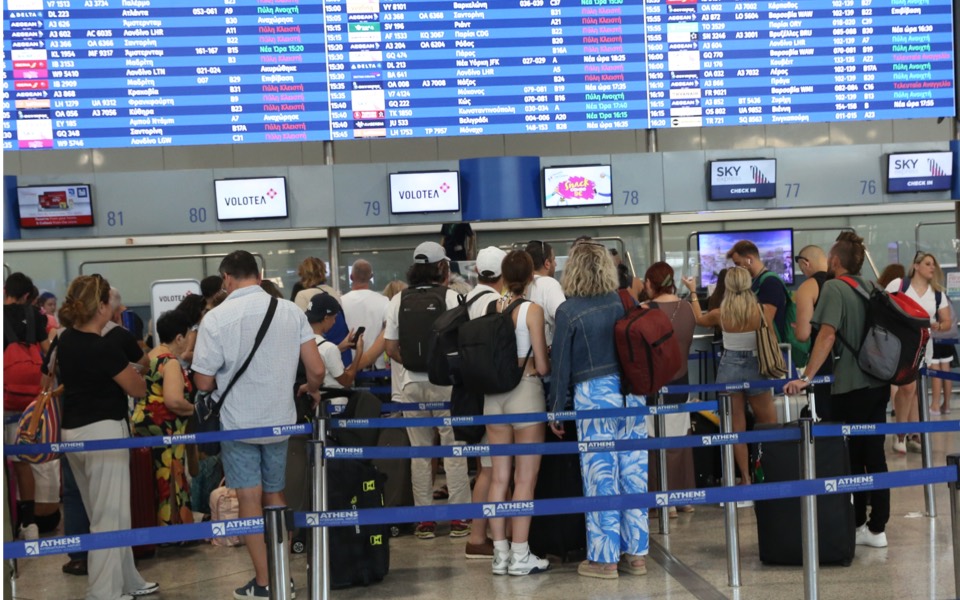Travel receipts decreased in August for the second month in a row, on an annual basis, despite the rise in arrivals of foreign visitors to Greece.
Greek tourism industry sources dub the development as a “warning” both for the relationship between prices and offered services and infrastructure, as well as for the expectations of a part of the market that tourism can continue to set consecutive records.
Other parties estimate that the very hot summers in the Mediterranean have begun to change the habits of travelers and the dates they wish to travel, and base their assessment on the excellent performance for Greek tourism in January-June.
Based on the Bank of Greece data available until August, travel receipts this year remain at higher levels than last year for the first eight months, while arrivals are significantly increased too. Compared to January-August 2023, non-resident traveler arrivals increased by 9.9%, but receipts only by 3.2%, according to the data released on Monday. Compared to August 2023, arrivals rose 6.6%, but receipts decreased 1.8%. These figures follow on from July, when arrivals also rose 4.1%, but receipts fell 4.2%. The data point to a decrease in average spending per trip and a decrease in the number of days they stay in the country. One explanation expert economists give for the shorter trips is that higher transport costs limit available budgets, even when these remain constant. In addition, pressure on consumer confidence in Greece’s key markets due to the broader economic situation is making travelers more careful with spending.
From the Greek Tourism Confederation, the experts state that safer conclusions can only be drawn once the September figures are known. However, they agree that the trend of travel shifting to the months before and after the summer – i.e. from July to September – is evident. In any case, the belief that this year’s receipts will increase annually, albeit marginally, and that arrivals will increase by approximately 10%, is still held. Some sources, however, note that the market was bound to decline at some point after the very large price increases of previous years.
